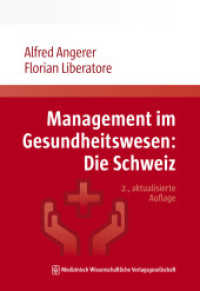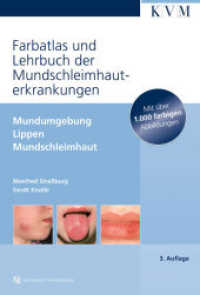- ホーム
- > 洋書
- > 英文書
- > Religion / Ethics
Full Description
The crisis in thought we witness today, in the name of freedom of speech, did not exist half a century ago when Islam and Pakistan were understood as synonymous. In every stage of Pakistan's liberation movement, the leadership of the Muslim League and the masses, as evidenced by the historic records in the form of archives, speeches, statements, and resolutions, endorsed this reality. Even today, it is an insignificant number of people, but vocal, who question this fact of the matter. Fabricated and fictitious ideas are attributed to the philosopher, sage, and ideologue Allama Iqbal and the great Muhammad Ali Jinnah, as well as about the well-established two-nation theory.
Numerous efforts have taken place to portray the Quaid as a secular leader. In this quagmire, there are a handful of people loyal to Pakistan's ideology, Islamic vision, and values who genuinely present the views of the Quaid. Dr. Anis is one such person who, in his over fifty years of academic career, has stood for this noble mission. How did the Quaid visualise Pakistan is a question that has been made controversial by a limited number of so-called liberal intellectuals. Dr. Anis in a dispassionate, logical, and evidence-based research, has provided an authentic narrative of the Quaid's vision of Pakistan, in the Quaid's own words, in a simple and satisfactory way in order to let the new generations see the truth as it is.
Contents
Acknowledgements
Preface
1. The emergence of the concept of millat: an ideological community
2. The Muslim community on the eve of the fall of khilafah
3. Allama Iqbal's vision of Pakistan
4. Is Islamic state theocratic?
5. The Quaid's concept of Muslims as a (millat) nation
6. The liberal response
7. Did the Quaid support secularism?
8. The name of the country as its identity
Appendix I: Twenty-two points of the 'ullama
Appendix II: Names of the 'ullama and mashaikh
Appendix III: Pamphlet on Pakistan
(Now or Never-Ch Rahmat Ali)
Appendix IV: What do we mean by Pakistan
(Allama Muhammad Asad)
Appendix V: Towards an Islamic constitution
Appendix VI: Pledge of sacrifice of the Quaid
Endnotes
Glossary
Index








